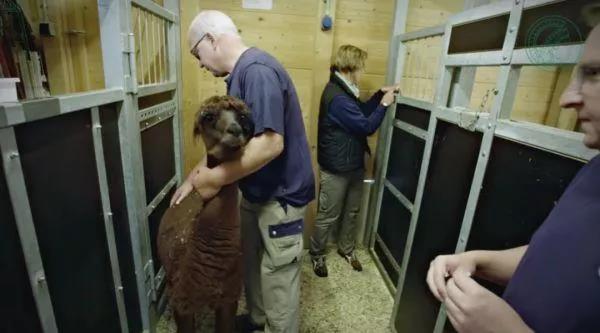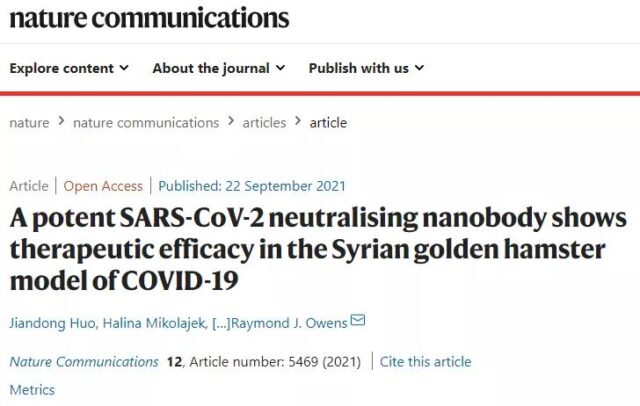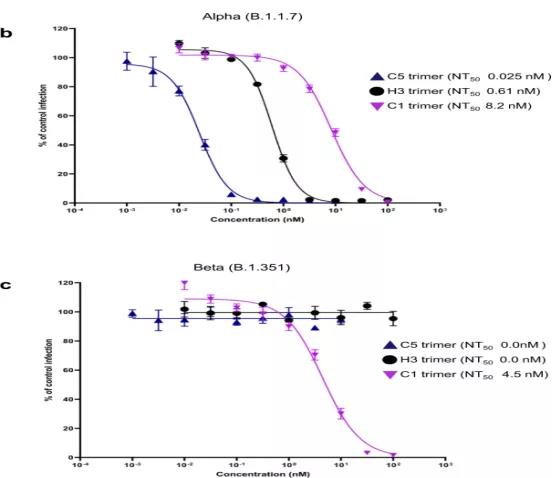The nano antibody from alpaca effectively against COVID-19 and variants
- Aspirin: Study Finds Greater Benefits for These Colorectal Cancer Patients
- Cancer Can Occur Without Genetic Mutations?
- Statins Lower Blood Lipids: How Long is a Course?
- Warning: Smartwatch Blood Sugar Measurement Deemed Dangerous
- Mifepristone: A Safe and Effective Abortion Option Amidst Controversy
- Asbestos Detected in Buildings Damaged in Ukraine: Analyzed by Japanese Company
The nano antibody from alpaca effectively against COVID-19 and variants
- Red Yeast Rice Scare Grips Japan: Over 114 Hospitalized and 5 Deaths
- Long COVID Brain Fog: Blood-Brain Barrier Damage and Persistent Inflammation
- FDA has mandated a top-level black box warning for all marketed CAR-T therapies
- Can people with high blood pressure eat peanuts?
- What is the difference between dopamine and dobutamine?
- How long can the patient live after heart stent surgery?
The nano antibody from alpaca effectively against COVID-19 and variants.
[Nature News] The savior of COVID-19 patients-it turned out to be an alpaca! Scientists have extracted a simple and easy-to-storable nano antibody from alpaca: it can effectively fight the new coronavirus and its dangerous variants
A study published in Nature Communications on September 22 found that scientists have successfully developed a nanobody derived from alpaca that can effectively neutralize the new coronavirus and its dangerous new variants.
Antibodies can help the immune system resist pathogens by “neutralizing” the virus, but traditional antibodies have limited neutralization ability, low stability, and difficult storage conditions. They require needle infusion in the hospital, which is complicated and expensive to produce.
As a result, scientists turned their attention to nanobodies that can be produced cheaply and in large quantities-nanobodies extracted from alpacas are smaller, simpler, and more convenient to store, and they can remain active for a long time in the human body.
Nanobodies enter the human body more easily and more directly prevent the spread of the virus-one of the most effective SARS-CoV-2 neutralizers tested. Its unique structure and strength contribute to their great potential in the prevention and treatment of COVID-19 pneumonia, and advance clinical research.
A unique tiny antibody produced by llamas can provide a new first-line treatment for the new coronavirus, and patients can take it as a simple nasal spray.
Research led by scientists from the Rosalin Franklin Institute shows that nanobodies-a smaller, simpler form of antibody produced by llamas and alpacas-can effectively target SARS-CoV that causes COVID-19 -2 virus.

The researchers published a new study result in the journal Nature Communications on September 22, and published an article titled “A potent SARS-CoV-2 neutralising nanobody shows therapeutic efficacy in the Syrian golden hamster model of COVID -19” article.
They found that this short-chain molecule can be produced in large quantities in the laboratory, and when injected into an infected animal model, it can significantly reduce the symptoms of new coronavirus disease.

These Nanobodies are tightly bound to the SARS-CoV-2 virus and neutralize them in cell culture, which can provide a cheaper and easier-to-use alternative to human antibodies extracted from patients who have recovered from the new coronavirus. Human antibodies are a key treatment for severe cases during a pandemic, but they usually require needle infusion in the hospital.
The Department of Public Health of the United Kingdom called the study “huge potential in the prevention and treatment of the new coronavirus,” adding that the nanobody “is one of the most effective SARS-CoV-2 neutralizers we have tested.”
Professor Ray Owens, head of protein production at the Rosalyn Franklin Institute and lead author of the study, said: “Nanobodies have many advantages over human antibodies. They are cheaper to produce and can be delivered directly to the respiratory tract through a nebulizer or nasal spray, so patients can Self-management at home without the need for medical personnel to participate in the injection. This may be more convenient for patients, but it can also transfer treatment directly to the site of respiratory infection.”
The research team injected a portion of the SARS-COV-2 spike protein into a llama called Fifi to produce nanobodies. Fifi is part of the antibody production facility at the University of Reading. The spike protein is located on the outside of the virus and is responsible for binding to human cells to infect human cells.
Although the injection did not make Fifi sick, it triggered her immune system to fight the viral proteins by producing nanobodies. Then taking a small blood sample from the alpaca, the researchers were able to purify four nanobodies that can bind to the new coronavirus.
These Nanobodies are combined into three chains to enhance their ability to bind to viruses. These Nanobodies are then produced in the cells of the laboratory. The team found that three nano antibody chains can neutralize the original variant of the new coronavirus and the Alpha variant that was first discovered in Kent, UK. The fourth Nanobody chain can neutralize the Beta variant first discovered in South Africa.

Legend: In vitro neutralization of SARS-CoV-2 strain
When hamsters infected with SARS-CoV-2 were injected with one of the nanobody chains (also called trimers), the disease of these animals was significantly reduced, and the weight loss after seven days was much lower than that of untreated hamsters. Compared with untreated animals, hamsters treated with Nanobodies also had lower viral loads in their lungs and respiratory tract after seven days.
Professor James Naismith, Director of the Rosalyn Franklin Institute, who is in charge of this research, said: “Because we can see that every atom of a nanobody is connected to a spike, we know what makes these so special. “
The results of this study are the first step in the development of a new type of treatment against the new coronavirus, which will prove to be very valuable as the epidemic continues.
Professor Naismith said: “Although the vaccine has proven to be very successful, not everyone responds to the vaccine, and everyone’s immunity weakens at different times. It is still very important to have drugs that can treat the virus, especially because it is not The world is vaccinating at the same rate, and there is still the possibility of new variants that can bypass vaccine immunity.”
Professor Naismith added that if successful and approved, Nanobodies could provide an important treatment method around the world because they are easier to produce than human antibodies and do not need to be stored in cold storage facilities.
The research team includes scientists from the University of Liverpool, the University of Oxford and the Department of Public Health, and now hopes to obtain funding so that they can conduct further research and prepare for human clinical research.
Professor Miles Carroll, Deputy Director of the National Infection Service of the Public Health Service of England (PHE), said: “Although this research is still in its early stages, it opens up important possibilities for the use of effective nanobodies to treat the new coronavirus.”
“These are the most effective SARS-CoV-2 neutralizers we have tested in PHE. We believe that the unique structure and strength of nanobodies contribute to their great potential in the prevention and treatment of COVID-19 pneumonia, and we look forward to cooperation Advance this work to clinical research.”
Dr. Andrew Bourne, co-director of EPSRC, said: “Using the unique characteristics of llama nanobodies, this research may bring an important treatment for the new coronavirus, and this new treatment is cheaper to produce and easier to manage. This vividly illustrates the possible impact of the long-term discovery research carried out by the Rosalyn Franklin Institute at the forefront of physics and life sciences.”
Co-author Professor James Stewart, Professor of Molecular Virology at the University of Liverpool, said: “Preclinical trials of nanobodies in hamsters are very encouraging and show that they may be effective in treating new coronavirus diseases and helping prevent infection. For unvaccinated Or for people with improper or ineffective vaccination, the use of such therapies will be very important.”
Researchers funded by the British Research and Innovative Medicine Research Council, the Engineering and Physical Sciences Research Council, the EPA Cephalosporin Foundation and the Wellcome Foundation also hope that the nanobody technology they develop can form a so-called “platform technology” , Can quickly adapt to the struggle with other diseases.
Professor Owens said: “When a new virus emerges in the future, the universal technology we develop may respond to it, which is very important for the emergence of new treatments as soon as possible.”
Reference:
1.https://medicalxpress.com/news/2021-09-llama-antibodies-significant-potential-potent.html
2.https://www.nature.com/articles/s41467-021-25480-z#additional-information
The nano antibody from alpaca effectively against COVID-19 and variants
(source:internet, reference only)
Disclaimer of medicaltrend.org
Important Note: The information provided is for informational purposes only and should not be considered as medical advice.



